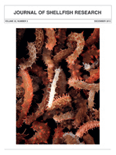
JOURNAL OF SHELLFISH RESEARCH
Scope & Guideline
Innovating Research for Shellfish Conservation
Introduction
Aims and Scopes
- Shellfish Biology and Ecology:
Research on the life cycles, reproductive biology, and ecological interactions of shellfish species, including studies on population dynamics, habitat use, and species interactions. - Aquaculture Techniques and Innovations:
Exploration of novel aquaculture practices, including breeding techniques, environmental management, and health assessments to improve shellfish production and sustainability. - Environmental Impacts and Stressors:
Investigation of environmental factors affecting shellfish populations, including climate change, pollution, and habitat degradation, with a focus on resilience and adaptation strategies. - Pathology and Disease Management:
Studies addressing diseases affecting shellfish, including pathogen identification, disease dynamics, and management strategies to mitigate impacts on aquaculture and wild populations. - Genomics and Molecular Biology:
Research utilizing genomic and molecular techniques to understand genetic diversity, disease resistance, and the physiological responses of shellfish to environmental stressors. - Sustainability and Fisheries Management:
Analysis of fisheries management practices and sustainability assessments of shellfish stocks to inform policy and conservation efforts.
Trending and Emerging
- Climate Change Resilience:
Research focusing on the impacts of climate change on shellfish populations and ecosystems is gaining traction, emphasizing the need for adaptive management strategies and resilience assessments. - Microbial Interactions and Health:
Increasing studies on the microbiomes of shellfish and their roles in health, disease resistance, and environmental interactions are becoming prominent, reflecting a growing interest in the biological interactions affecting shellfish. - Integrated Multi-Trophic Aquaculture (IMTA):
Papers exploring IMTA systems are emerging, showcasing innovative approaches to sustainable aquaculture that combine shellfish farming with other marine organisms to enhance productivity and ecological health. - Genomic and Biotechnological Advances:
There is a notable increase in research utilizing genomics and biotechnological methods to enhance breeding, health management, and understanding of shellfish biology, indicating a shift towards high-tech solutions in aquaculture. - Ecotoxicology and Environmental Monitoring:
Research on the effects of pollutants, particularly microplastics and harmful algal blooms, on shellfish health and ecosystems is rising, highlighting the need for monitoring and mitigation strategies.
Declining or Waning
- Traditional Fisheries Practices:
Research focused on conventional fishing techniques appears to be waning, possibly due to a shift towards more sustainable and innovative aquaculture practices that emphasize ecosystem management. - Local Species Studies:
There has been a noticeable decline in studies focusing exclusively on local or regional shellfish species, as researchers increasingly prioritize global issues and species with broader ecological impacts. - Non-Scientific Public Engagement:
Papers addressing non-scientific community engagement in shellfish aquaculture and fisheries management have decreased, perhaps indicating a shift towards more technical and scientific investigations.
Similar Journals
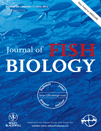
JOURNAL OF FISH BIOLOGY
Pioneering Research in Fish Biology and EcologyJOURNAL OF FISH BIOLOGY, published by Wiley in the United Kingdom, is a distinguished peer-reviewed journal dedicated to advancing the understanding of the biology and relationships of fishes. With a robust history from its inception in 1969 to its future publications extending into 2024, the journal occupies a pivotal position in the academic landscape of aquatic sciences and ecology. Holding a notable Impact Factor and recognized within the second quartile (Q2) for both Aquatic Science and Ecology, Evolution, Behavior and Systematics, it serves as an essential resource for researchers, professionals, and students alike. The journal’s contributors delve into diverse topics ranging from evolutionary biology to conservation strategies, fostering a dynamic interchange of knowledge and innovation within the fish biology community. Access options are currently via subscription, ensuring high-quality, curated content that reflects the latest empirical research and theoretical advancements in the field.
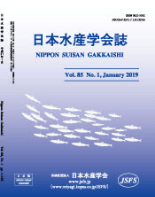
NIPPON SUISAN GAKKAISHI
Illuminating the Science of Aquatic EcosystemsNIPPON SUISAN GAKKAISHI, published by the Japanese Society of Fisheries Science, is a prestigious journal with a long history dating back to its inaugural issue in 1932. This journal, which spans key contributions to the field of Aquatic Science, serves as a vital platform for the dissemination of important research findings related to fisheries and aquatic biology, fostering knowledge and innovation in Japan and beyond. Although it is not an open-access publication, its rigorous peer-review process ensures the quality and integrity of the articles published. The journal is currently listed in the Q4 category for Aquatic Science according to the 2023 metrics, placing it within a niche but significant corner of the research landscape. With an ISSN of 0021-5392 and E-ISSN of 1349-998X, it continues to provide essential insights that benefit researchers, professionals, and students alike, highlighting advancements and challenges within aquatic ecosystems over a converged year span that continues to evolve through to 2024.

VIE ET MILIEU-LIFE AND ENVIRONMENT
Fostering Ecological Insights for a Healthier PlanetVIE ET MILIEU - LIFE AND ENVIRONMENT is a pivotal journal in the realms of aquatic science and ecology, serving as a vital platform for researchers and professionals interested in the interconnections between living organisms and their environments. Published by the esteemed OBSERVATOIRE OCEANOLOGIQUE BANYULS in France, this journal has been disseminating valuable research since its inception in 1980, with volumes covering various topics pertinent to environmental dynamics through to 2024. Despite its current classification in the Q4 quartile for both aquatic science and ecology, the journal offers a unique opportunity for scholars to contribute to niche areas often overlooked by more prominent publications. VIE ET MILIEU is committed to fostering a comprehensive understanding of ecological interactions and the conservation of aquatic ecosystems, making it an essential resource for those engaged in environmental science and biology. Researchers can access a wealth of knowledge that supports their work, encourages collaboration, and inspires innovative approaches to pressing ecological issues.

Journal of Fish and Wildlife Management
Bridging science and practice in fish and wildlife management.The Journal of Fish and Wildlife Management, published by the U.S. Fish & Wildlife Service, serves as a vital resource for scholars, researchers, and professionals in the fields of Animal Science, Ecology, and Conservation Biology. With its ISSN 1944-687X, this esteemed journal has been disseminating critical research findings since 2010, contributing significantly to the understanding of fish and wildlife conservation practices and their ecological impacts. Despite its Q3 category rankings in various disciplines as of 2023, it provides a platform for innovative research that influences policy and management strategies for biodiversity conservation. The journal, although not open access, remains committed to advancing the scientific discourse surrounding wildlife management with articles that emphasize practical conservation efforts and ecological sustainability. Readers can expect a diverse range of articles that promote best practices in the management and conservation of fish and wildlife resources, furthering our collective mission of preserving ecological health and biodiversity for future generations.

Marine Life Science & Technology
Innovating solutions for vibrant marine ecosystems.Marine Life Science & Technology is a premier journal published by SPRINGERNATURE, dedicated to advancing research in the vibrant fields of Aquatic Science, Biotechnology, Ecology, Evolution, Behavior and Systematics, and Oceanography. Since its inception in 2019, the journal has rapidly gained recognition, achieving a distinguished Q1 quartile ranking across multiple categories as of 2023. With impressive Scopus ranks—including 10th in Aquatic Science and 7th in Oceanography—this journal serves as a vital platform for scholars, professionals, and students to disseminate original research, innovative technologies, and critical reviews related to marine ecosystems and biotechnological applications. Based in Germany, Marine Life Science & Technology fosters open collaboration and knowledge sharing, vital for addressing contemporary challenges in marine and aquatic environments, ultimately contributing to sustainable development and ecological preservation.
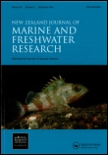
NEW ZEALAND JOURNAL OF MARINE AND FRESHWATER RESEARCH
Exploring the Depths of Aquatic ScienceNEW ZEALAND JOURNAL OF MARINE AND FRESHWATER RESEARCH, published by Taylor & Francis Ltd, stands as a distinguished platform for the dissemination of innovative research in the realms of aquatic science and ecology. With an ISSN of 0028-8330 and E-ISSN 1175-8805, this journal has been curating significant scientific contributions since its inception in 1967, continuing through to 2024. Recognized in the Q2 category across multiple relevant fields—including Aquatic Science, Ecology, and Water Science—this journal ranks notably in Scopus, with a 74th percentile for Ecology, Evolution, Behavior and Systematics, highlighting its impact and relevance within the scientific community. Though not an open-access publication, its rigorous peer-reviewed articles offer insights that resonate with researchers, professionals, and students who are passionate about advancing our understanding of freshwater and marine ecosystems. By fostering a collaborative space for ecological and environmental inquiries, the NEW ZEALAND JOURNAL OF MARINE AND FRESHWATER RESEARCH is essential for those aiming to contribute to the vital conversations around biodiversity, conservation, and sustainable management of aquatic resources.

BOLETIM DO INSTITUTO DE PESCA
Connecting researchers for impactful aquatic discoveries.BOLETIM DO INSTITUTO DE PESCA, published by the Instituto Pesca, is a Brazilian journal dedicated to advancing the fields of Animal Science and Aquatic Science. With its Open Access policy adopted in 2008, the journal ensures that research is widely disseminated, fostering collaboration and innovation among researchers, professionals, and students alike. Despite its recent Q4 category rankings in the 2023 metrics for both disciplines, the journal plays a vital role in providing a platform for emerging studies and critical discussions related to aquatic ecosystems and fisheries management. Covering a wide range of topics within its scope, BOLETIM DO INSTITUTO DE PESCA publishes original research, reviews, and case studies, stimulating academic dialogue and contributing to the sustainable management of aquatic resources in Brazil and beyond. This journal is an essential resource for anyone invested in marine and freshwater biology, ecology, and conservation.
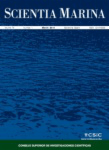
SCIENTIA MARINA
Unveiling Ocean Mysteries Through Open Access ResearchSCIENTIA MARINA, an esteemed journal published by the Consejo Superior Investigaciones Cientificas (CSIC) in Spain, focuses on critical studies within the fields of Aquatic Science and Oceanography. With an Open Access policy since its inception in 1998, this journal facilitates widespread dissemination of research findings, significantly enhancing accessibility for researchers, professionals, and students alike. Currently, SCIENTIA MARINA holds a Q3 ranking in both categories for 2023, demonstrating its commitment to advancing knowledge in marine and aquatic environments. With a convergence of research years from 1996 to 2024, it remains a pivotal platform for innovative research, encompassing various aspects of marine biology, ecology, and environmental science. The journal serves as an essential resource for scholars aiming to contribute to the understanding and preservation of marine ecosystems.
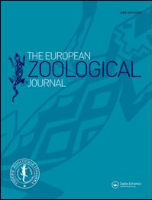
European Zoological Journal
Elevating the Study of Animal Sciences Across EuropeEuropean Zoological Journal, published by Taylor & Francis Ltd, is an esteemed open-access publication dedicated to advancing the exciting field of zoology. Since its inception in 2017, this journal has progressively established itself as a vital resource for researchers, professionals, and students alike. With its Q2 ranking in Animal Science and Zoology as of 2023, the journal ranks in the 69th percentile among its peers, showcasing its influence and contribution to the discipline. The journal’s broad scope covers a wide range of topics within zoology, aiming to foster an understanding of animal biology and conservation efforts. As an open-access journal, it not only enhances the dissemination of knowledge but also encourages collaborative research across global communities. Situated in the United Kingdom, the European Zoological Journal invites submissions that contribute to the evolving discourse in animal sciences, and endeavors to support the scientific community in addressing pressing ecological challenges.
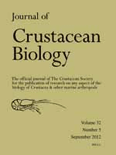
JOURNAL OF CRUSTACEAN BIOLOGY
Innovating Research in Crustacean EcologyJOURNAL OF CRUSTACEAN BIOLOGY, published by Oxford University Press, is a premier peer-reviewed journal dedicated to advancing the field of crustacean biology. With an ISSN of 0278-0372 and E-ISSN 1937-240X, this esteemed journal has been a critical platform for the dissemination of research since its inception in 1984, encompassing a diverse array of studies related to the biology, ecology, and conservation of crustaceans. As part of the Aquatic Science category, the journal ranks in the Q3 quartile, illustrating its increasing relevance and impact within the scientific community. Although it is not an open-access journal, the quality of content published here ensures that it is highly regarded among researchers, professionals, and students alike. With annual converged issues until 2024, the JOURNAL OF CRUSTACEAN BIOLOGY remains a vital resource for those interested in crustacean research and its implications for broader ecological studies.